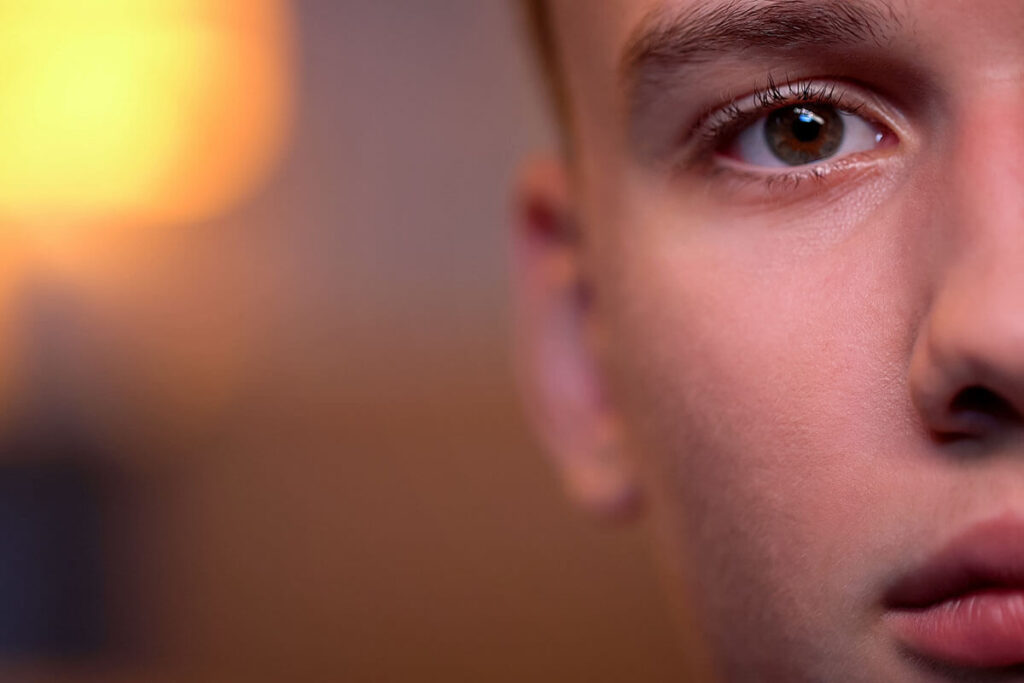While it may seem like teens have less stress and conflict than adults, many teens between the ages of 13 and 18 have an anxiety-related disorder. Mental health symptoms increase your chances of developing a substance abuse problem, making teen anxiety and substance abuse strongly linked. If a teen you love struggles with anxiety and needs treatment for a substance abuse disorder, they have a co-occurring disorder. It is critical to get treatment at an adolescent treatment center.
Teen Anxiety and Substance Abuse
Anxiety-related disorders cause you to feel intense anxiety or panic, even if you understand that those thoughts and feelings are irrational. Anxiety disorders can make you especially self-conscious, making it hard to socialize and interact with others. The reason why teen anxiety and substance abuse disorders are strongly connected is that untreated anxiety can cause you to self-medicate with drugs and alcohol.
Substances like alcohol and marijuana can temporarily relieve anxiety and induce calming emotions. However, drugs and alcohol aggravate underlying mental health disorders, meaning that your mental health will deteriorate if you’re abusing psychoactive substances. A complication of teen anxiety and substance abuse disorders is that drugs and alcohol also render mental health treatment ineffective.
Since drugs and alcohol are neurotransmitter inhibitors, they force your brain to release more neurotransmitters than it should. Many mental health disorders are linked to insufficient supplies of neurotransmitters, which is why substances can provide temporary alleviation but ultimately worsen mental health problems.
When teen anxiety and substance abuse occur at the same time, or one develops right after another, you have a co-occurring disorder. Having a dual diagnosis requires treating both conditions, as failing to address one can aggravate symptoms of the other. Recovering from a substance abuse disorder is also more difficult for teens with a co-occurring disorder, as managing both requires complying with mental health treatment and avoiding all potentially addictive psychoactive substances.
How Co-Occurring Disorders are Treated
Anxiety disorders are the most common mental health condition in the country. 40 million Americans, which accounts for over 18% of the adult population, struggles with an anxiety disorder each year. Anxiety disorders create debilitating symptoms, which can impact your relationships, happiness, and overall wellbeing. Even though anxiety disorders are highly treatable, less than 40% of people struggling with one gets treatment.
Many treatment centers offer dual diagnosis programs because co-occurring conditions are prevalent. The key to recovering from teen anxiety and substance abuse disorders is reaching out for help as soon as you develop symptoms. Co-occurring disorders are treated either in an inpatient or outpatient setting, depending on your individual needs.
Inpatient programs are best if you have:
- A physical dependency
- A lengthy or severe addiction
- Complex mental health symptoms
- Serious withdrawal symptoms
Most inpatient dual diagnosis programs last for four weeks and provide you immediate access to mental health professionals, including a psychiatrist. During treatment, staff will ensure that your mental health needs are met and will make any necessary medication adjustments. It’s common to need to change medications or adjust the dosage during treatment, as mental health symptoms can intensify during substance abuse treatment.
Outpatient programs, which include options like partial hospitalization, allow you to return home at night and continue going to school during treatment. A significant benefit of outpatient treatment is that programs are less time-intensive and more flexible.
Both inpatient and outpatient programs combine evidence-based and holistic therapies, such as:
- Trauma therapy
- Relapse prevention education
- Cognitive-behavioral therapy
- Dialectical behavior therapy
- Individual, group, and family counseling
- Medication management
- Discharge and aftercare planning
Finding Help for Your Teen Today
Teen anxiety and substance abuse are a toxic combination, as abusing drugs and alcohol can make anxiety symptoms more severe. Struggling with mental health and substance abuse can make it challenging to maintain stability, which can interfere with your goals, happiness, and relationships. If your teen is struggling with mental health or substance abuse problems, contact us today at 866.300.5275 to find out more about our specialized treatment programs.

